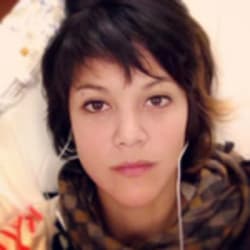Images
Chemistry 14D: Organic Reactions and Pharmaceuticals is a class that provides an in depth analysis of organic reactions, nucleophilic and electrophilic substitutions and additions; electrophilic aromatic substitutions, carbonyl reactions, catalysis, molecular basis of drug action, and organic chemistry of pharmaceuticals.
About the Professor: Professor Hardinger has been a faculty member in the UCLA Department of Chemistry and Biochemistry since 1997. His professional career began at Drexel University in Philadelphia, which afforded a BS in Chemistry in 1982. He then moved to Purdue University, and earned a PhD in Organic Chemistry in 1988. Two subsequent years as a postdoctoral scholar at Renssalear Polytechnic Institute were followed by appointment in 1990 as assistant professor at California State University. In 1997 he achieved the "forbidden transition" and moved to UCLA as Lecturer followed by promotion to Senior Lecturer in 2004. At UCLA his main teaching interests have been introductory organic chemistry courses in the physical science majors series as well as the life science majors series. His professional interests include development of new teaching tools and methods, both in print and electronic media. An introductory organic chemistry textbook (Organic Chemistry - A Thinking Student's Approach) is currently in development.
Similar resources
We doubt the critics, reject the status quo and see opportunity in dissatisfaction. Our campus, faculty and students are driven by optimism. It is not naïve; it is essential. And it has fueled every accomplishment, allowing us to redefine what's possible, time after time.
This can-do perspective has brought us 14 Nobel Prizes, 13 faculty MacArthur Fellows, 116 NCAA titles and more Olympic medals than most nations. Our faculty and alumni helped create the Internet and pioneered reverse osmosis. And more than 140 companies have been created based on technology developed at UCLA.
What inspires MacArthur Fellows and Rhodes Scholars? What gave Jackie Robinson the courage to become the first African American in Major League Baseball? What was the catalyst that spurred Vint Cerf and Leonard Kleinrock's dream of the Internet?
The answer is optimism. And it is in our DNA.
It is what enables us to push forward and redefine what's possible. It pervades our focus on education, research and service and, in turn, opens limitless opportunities to every student.
And through its eye-opening lens, we see beyond the classroom, allowing us to engage with the world right now.
As UCLA moves onward, we leverage our history to define our future. Every achievement and breakthrough we have made justifies our optimism, calling us to build upon our past. And as we near the end of a century of excellence, we steadfastly pursue future endeavors with the same optimism that brought us here.
This is UCLA.
These are the grounds of optimism.






